Description
HED4805 Assignment 3 Memo | Due 25 July 2025. All questions fully answered. Question 1 (25) Read the given extract titled, “Colonialism, coloniality and post-colonial Africa: a conceptual framework”, from Chapter 7 of the prescribed book (Seroto, Davids & Wolhuter, 2020), and then answer the questions that follow. Colonialism, coloniality and post-colonial Africa: a conceptual framework The post-colonial reconstruction of African societies cannot be limited to political and economic transformation. Due to the predominance of Western epistemologies and systems of education during and after colonialism, the African masses often became oblivious to their forgotten history. Western European colonial policies such as ‘assimilation’ (French) and ‘assimilados’ (Portuguese) were based on the rejection of local cultures for the adoption of a foreign, Assignment 03 History of Education Due date: 25 July 2025 Unique assignment number: marks 28 h European culture – essentially a denial of African identity. The African elite that worked in close collaboration and proximity to the colonial administration often became the main advocates of European culture. When African leaders met in Addis Ababa in 1963 to establish the Organisation of African Unity (OAU), the objective was to liberate the continent from colonialism and apartheid. Although the last colonial system (apartheid) was abolished in 1994, African countries remain largely dependent on foreign aid which continues to compromise their political and economic independence. Without achieving its objectives, the OAU was dissolved in July 2002 and transformed into the African Union (AU), which aims to unite its 53 member-states politically, socially, and economically. The creation of the AU intended to address the old African problems through the promotion of democracy, good governance, and foreign investment (Carbone, 2002). Africa still seems to be suffering from the aftermath of colonialism, which has posed serious challenges to its economic development and independence. The colonial legacy has left behind structural inequalities that are difficult to eradicate. However, Smith argues that ‘there can be no social justice without cognitive justice’ and calls for an ecology of knowledge(s) that enable the co-existence of alternative ways of knowing and scientific knowledge (Smith, 2012:214). The inspiration of an African Renaissance, which is mainly about cultural and intellectual revitalisation, should become an integral part of transforming and reconstructing the socio-economic landscape of Africa. Therefore, the restoration of Africa’s intellectual and cultural history needs to be at the centre of political and economic reconstruction and should not be treated in isolation. A common observation in previously colonised societies during the post-colonial period is the patronising continuation of colonial myths and stereotypes that represent the culture of the colonised as inferior (Alvares, 1991). Colonial powers regarded Asian and African people as belonging to ‘backward’ or ‘child races’; and as people who were inherently inferior because of their skin colour and perceived immorality, laziness, disregard for the sacredness of human life (Kies, 1953). These stereotypes became an integral part of the colonial educational systems. To maintain the political and social dominance of the colonial administration, the real history of the colonies were suppressed and replaced with the history of the coloniser, which was alienating to the local populations. The continuation of a colonial worldview and lifestyle after achieving political independence has become a defining characteristic of post-colonial Africa that has to be confronted. Conceptually, Maldonado-Torres (2007) explains the irony of colonial continuity by drawing a distinction between ‘colonialism’ and ‘coloniality’. Colonialism designates political and economic relations in which the power of a people rests on a foreign colonial/ imperial power; while coloniality refers to institutionalised colonialism, i.e., colonial practices expressed in a longstanding pattern of culture, social relations, and knowledge production (Maldonado- Torres, 2007). This duality between colonialism and coloniality has previously been addressed by Mignolo (1999) who sees the imaginary of the modern/ colonial world as a function of ‘colonial difference’ that operates on a notion of a ‘coloniality of power’. Mignolo borrows the concept ‘double consciousness’ from WEB du Bois, which captures the dilemma of subjectivities formed within the colonial difference, i.e., the experience of anyone who has lived and lives in modernity from coloniality (Mignolo & Ennis, 1999:29-30). Double consciousness becomes a crucial concept in explaining the ambivalence and tendencies of liberated Africans towards colonialism. HED4805/101/0/2025 29 1. Elaborate on the concept “ecology of knowledge” as used in the text, in your own words. (5) 2. Differentiate between coloniality and colonialism. (10) 3. Do you think it was prudent and necessary to dissolve the OAU in favour of AU? Substantiate your answer. (10) Question 2 (25) Read the extract below titled, “Paradigms in education historiography”, from Chapter 2 of the prescribed book (Seroto, Davids & Wolhuter, 2020) and then answer the questions that follow. All the questions are based on the extract. Paradigms in education historiography The first fault line in the panorama of published research on the History of Education are the different paradigms. Thomas Kuhn (1971) defines a paradigm as the way in which a scientific or professional community views a field of study, the manner in which it identifies appropriate problems for study, and how it specifies legitimate concepts and methods. Four major paradigms in the History of Education can be distinguished: Idea history, History of Acts and policies or a ‘perspective from above’, Social history or a ‘grassroots perspective’, and Cultural history. Idea history presents the ideas about education from great thinkers chronologically throughout the ages, and as the main theme. These are typically presented with some background knowledge of the times in which the thinkers lived. An example is Robert Ulich’s (1947) 3 000 years of educational wisdom. Other publications in this stable include those of Power (1962) and Cole (1950). These books, which were popular in the mid-20th century, usually limited their discussion to Western education thought, with at most, a token admission of education thought outside of the Western world. The line of Western education philosophers typically begins with Socrates and Aristotle, then progresses chronologically through the canon of Western educational thought, i.e., St Augustine, Erasmus, Luther, Comenius, Rousseau, Spencer and Herbart, and ends with Dewey and Montessori in the early 20th century. A welcome exception and recent publication outside the Western world is the book by Gu Mingyuan (2014) Cultural Foundations of Chinese Education, which surveys 5 000 years of the evolution of thought that underpins education in China. Following Idea History is a history of Acts or a history ‘from above’: the history of policies and education Acts. This encapsulates the institutional types that were created; the purposes and curricula of these institutions, their methods; and the school attending population (which social strata attended these institutions). Some of these publications still contain a good dose of idea history too, as seen in texts including Duggan (1916), and Boyd & King (1975), who are part of 30 h the many texts which are still Eurocentric. However, there have been many publications on the History of Education that focus on circumscribed geographical areas (usually nation-states) outside of Western Europe and North America. An example is A Babs Fafunwa’s (1974) A History of Education in Nigeria. However, the problem is that these publications have never been integrated into the main corpus of the literature or scholarly discourse found in the History of Education. For example, the book by Fafunwa (1974) did not receive a review in any History of Education journal, despite providing ground-breaking literature on the largest education system in Africa. In the 1960s a new paradigm emerged. This social or grassroots paradigm, shifted the focus from ideas that shape education to actual education practice (Depaepe, 2002:2-3), and as such, education policies and changes are viewed in their broad social and political contexts (Wolhuter & Karras, 2016). Over time and in line with developments in the discipline of History and the Social Sciences, new topics gained prominence, for example, the history of the role of women in education; the role of the family; the role of minorities; and the role of excluded or marginalised individuals and groups (ibid.). In contrast to the preceding paradigms, this paradigm presents a grassroots perspective on education at various times, i.e., how learners and teachers experience education. In South African educational historiography, for example, Hartshorne’s (1992) Crisis and Challenge: Black Education, and Hyslop’s (1999) The Classroom Struggle: Policy and Resistance in South Africa, respectively present a view from above and from the grassroots level within the same era. The establishment of oral history projects at the universities of the Witwatersrand (Wits) and Cape Town (UCT) in the 1970s contributed significantly to this historical paradigm. These institutions addressed the neglect of oral history, especially pertaining to the experiences and memories of the colonial and apartheid periods. These contributions enriched historical archives now available for researchers. The archives consist of sound and visual materials that preserve significant events, and the experiences of ordinary people. A popular field of interest with historical significance are the forced removals that emanated from apartheid’s Group Areas Act (1950). The Wits oral history project recorded memories of places such as Sophiatown and Fietas (Gauteng), while the oral history project at UCT preserved recordings of the forced removals of Cape Town communities where black people were uprooted to make space for white people. The history of Claremont, Newlands, District Six and so many others have recorded (Field, S (ed), 2001). Lastly social or cultural history, commonly referred to as the ‘people’s history’, is increasingly becoming part of the dominant alternative narrative in the post-apartheid period. 1. Explain what you understand by the following: a. Idea history. (5) b. Social history. (5) c. Cultural history. (5) 2. Complete the following task: 2.1. As a history teacher and researcher, select a topic for research that relates to indigenous knowledge. (2) 2.2. Why is the topic in 2.1. important from the perspective of a decolonised history of HED4805/101/0/2025 31 education. (3) 2.3. Provide three data sources from literature on this topic. (5) Question 3 (See chapter 5 of the prescribed book.) (25) Do you agree that there were “research gaps and silences” in the educational history of South African Muslims? Evaluate these gaps by using appropriate evidence. Refer to the section titled, “Muslim educational history”, in Chapter 5 of the prescribed book (Seroto, Davids & Wolhuter, 2020). Question 4 (25) 4.1.1 Briefly discuss how the three waves of migration led to the formation of the post- apartheid Muslim community in South Africa. (15) 4.1.2 Explain the role played by the Turkish professor, Abu Bakr Effendi, in the development and promotion of Muslim education in South Africa. (10)



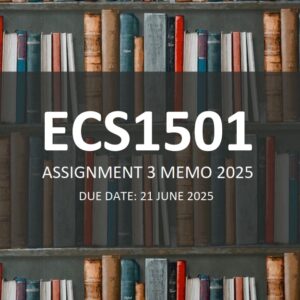

















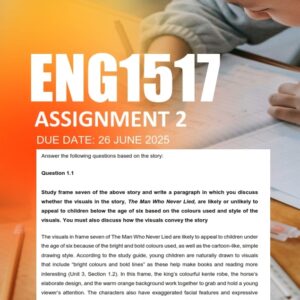

















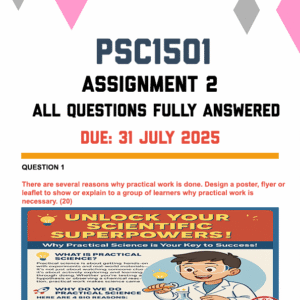










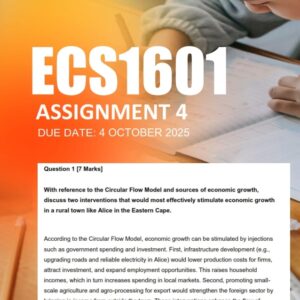
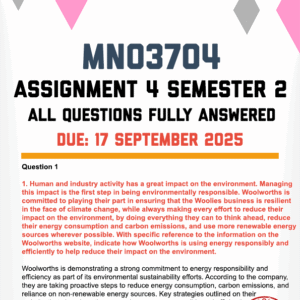
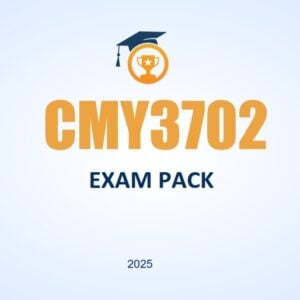













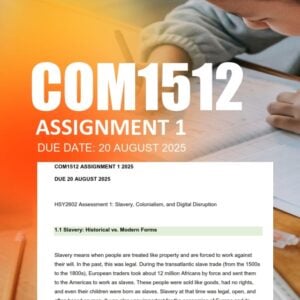




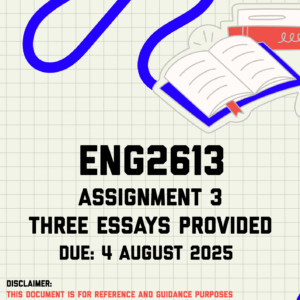

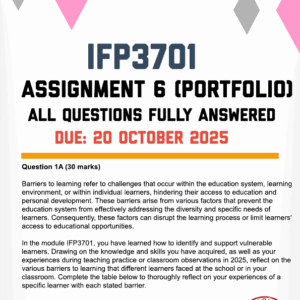


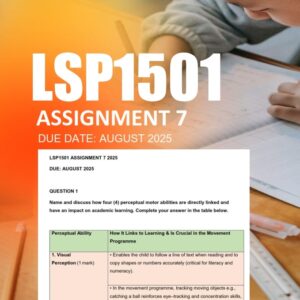
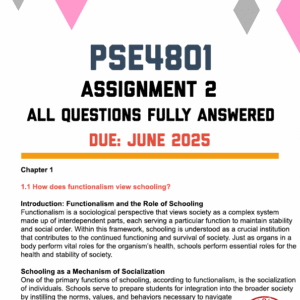

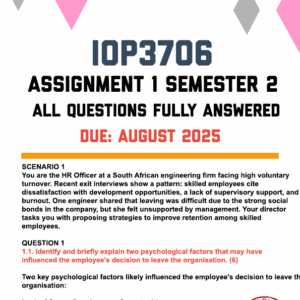





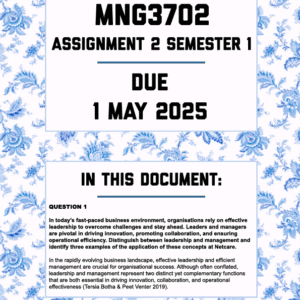




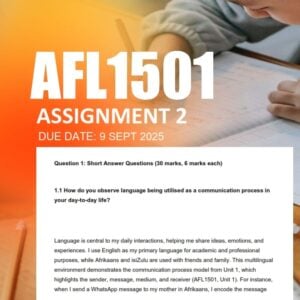



















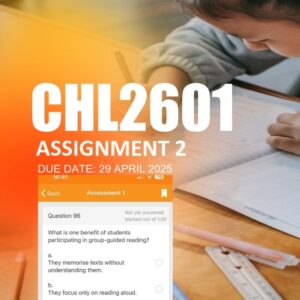







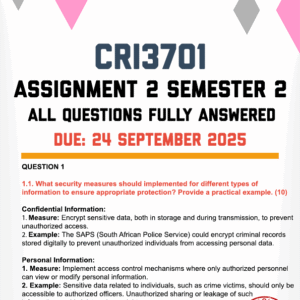






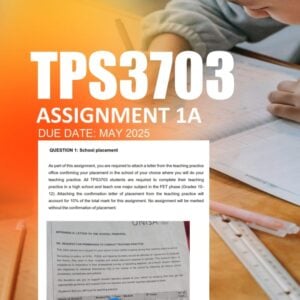


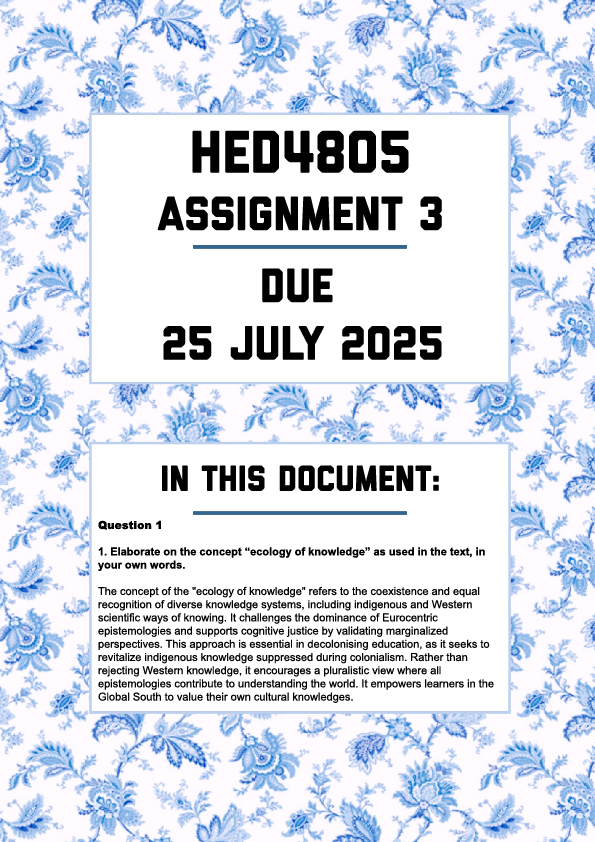


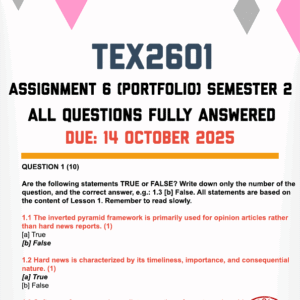






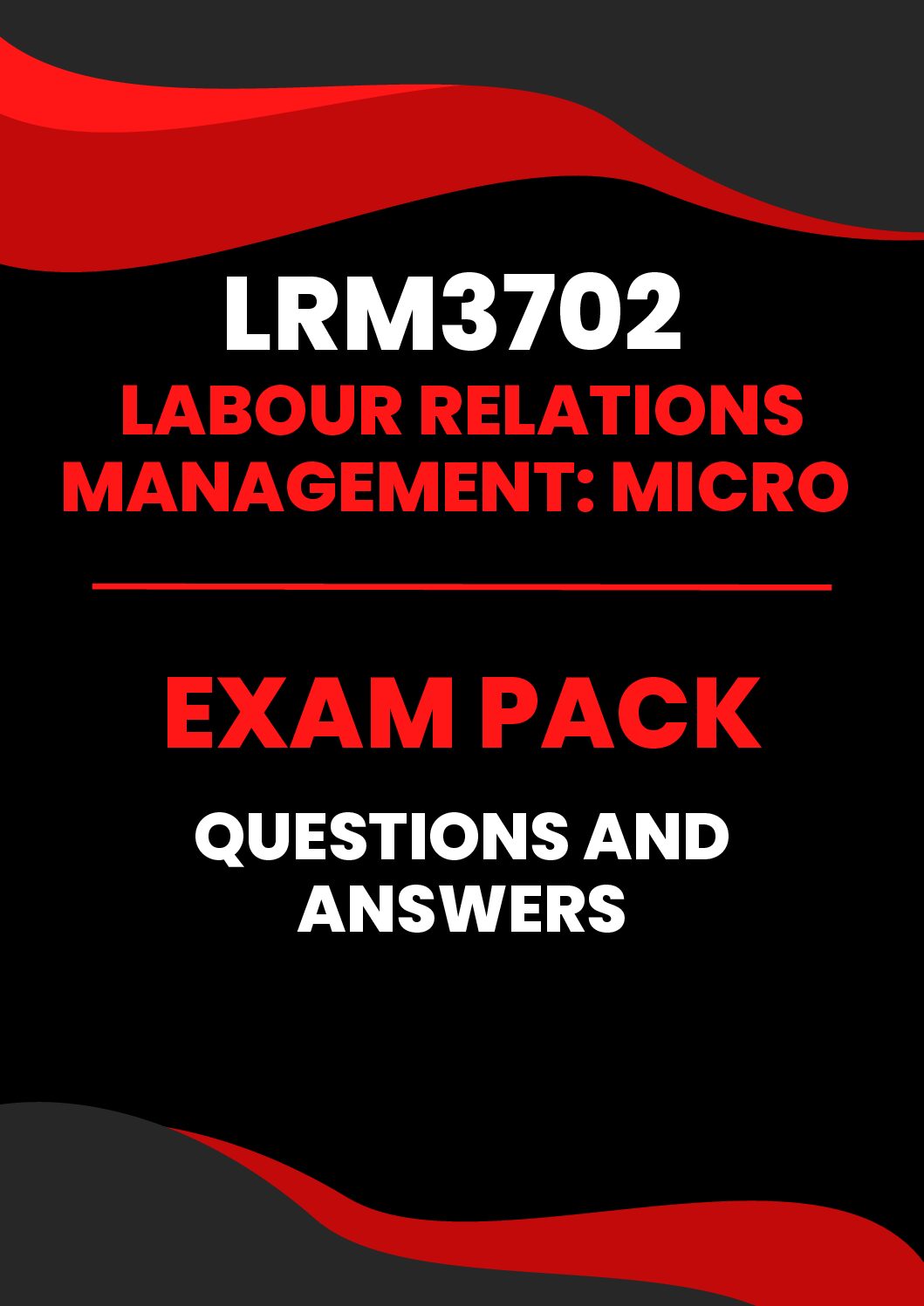
Reviews
There are no reviews yet.